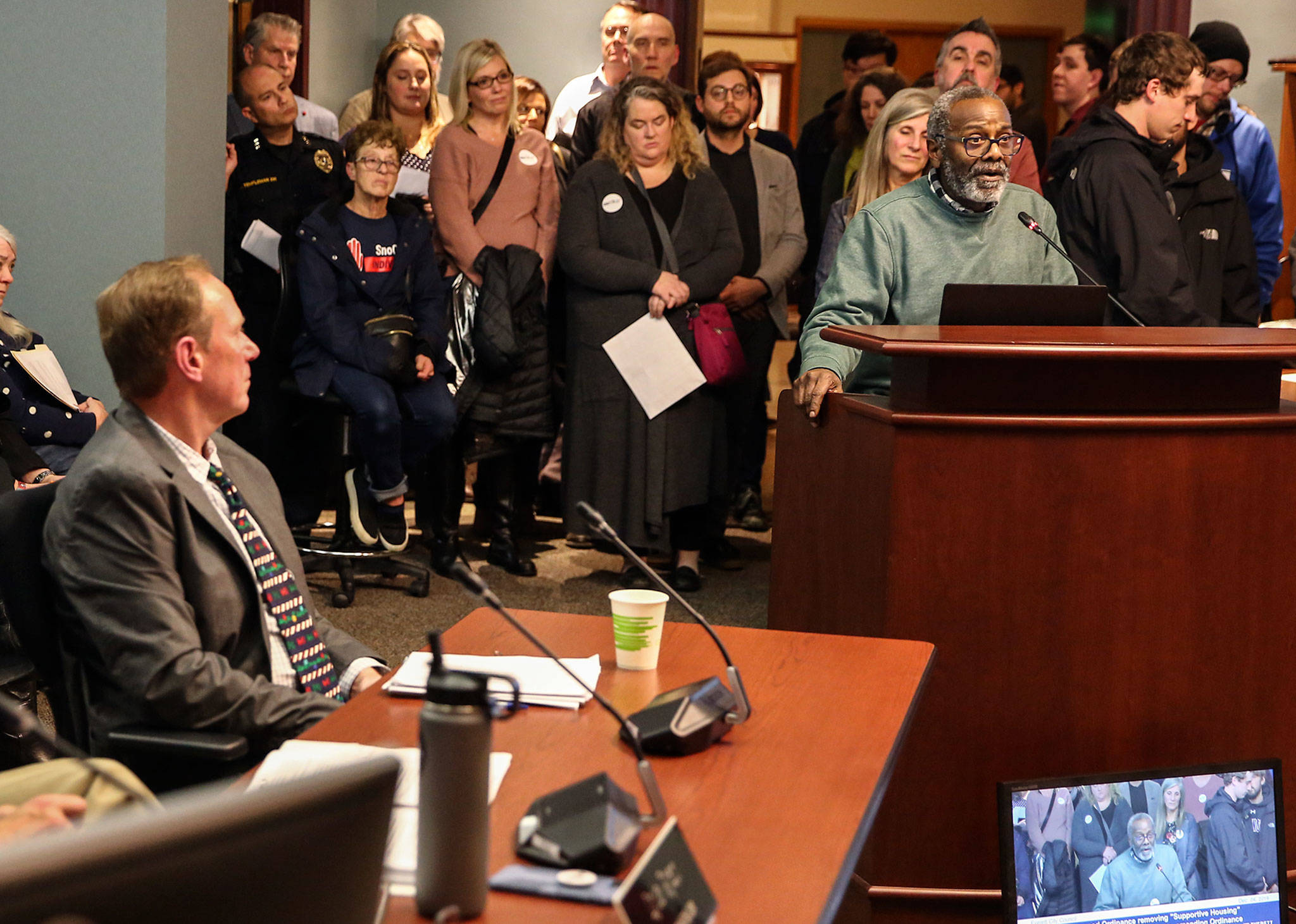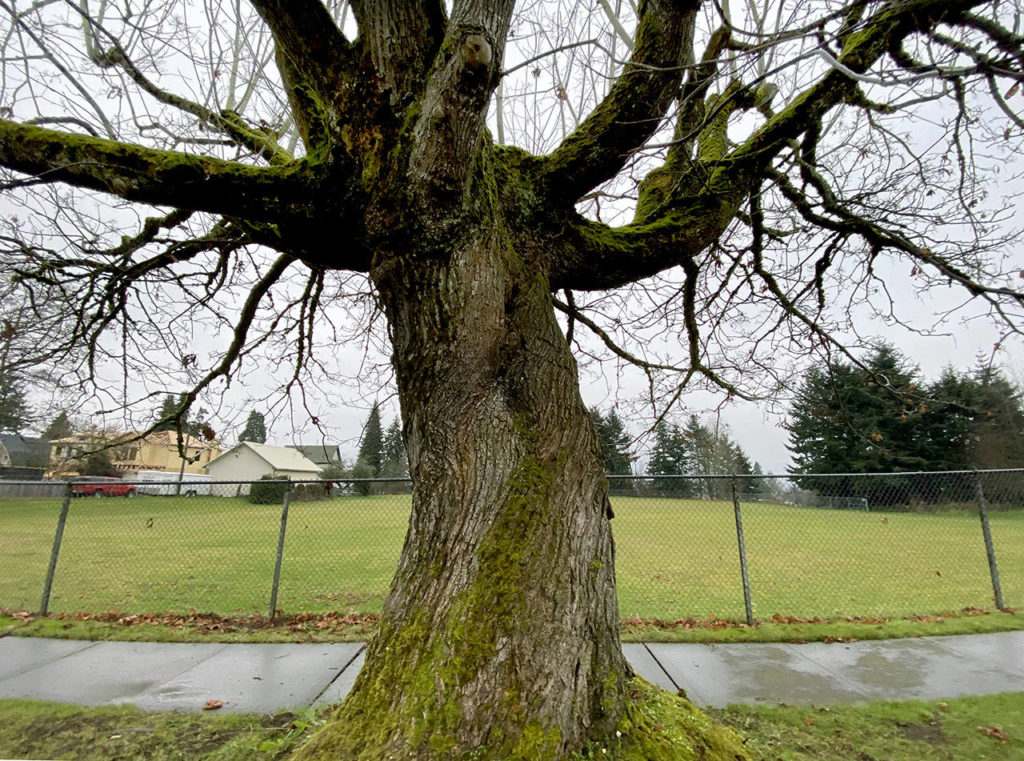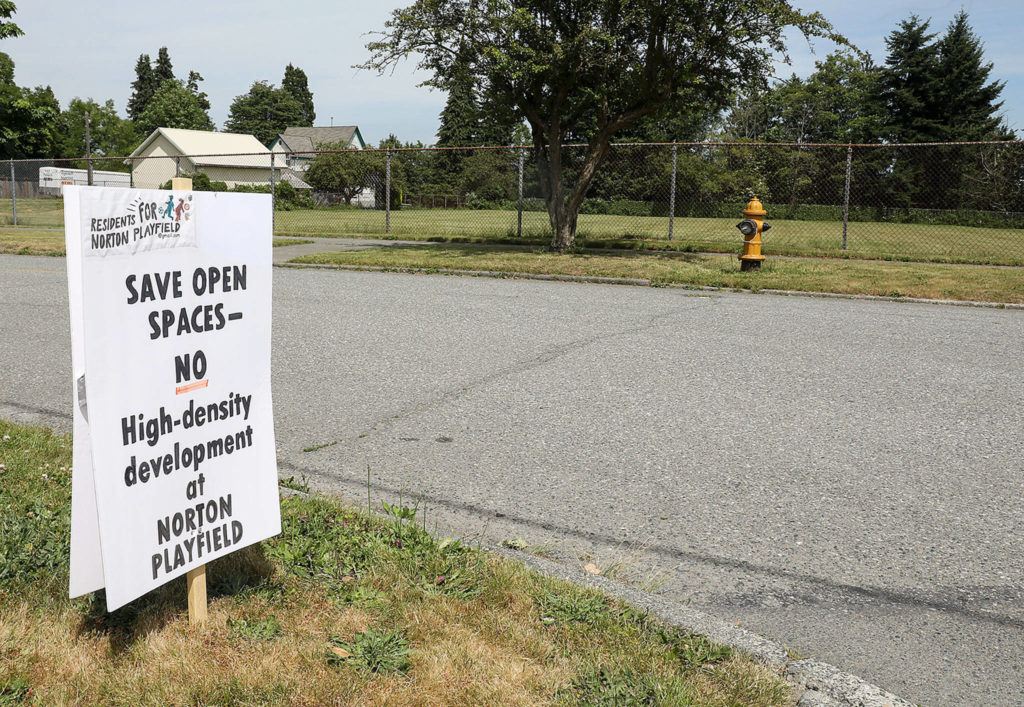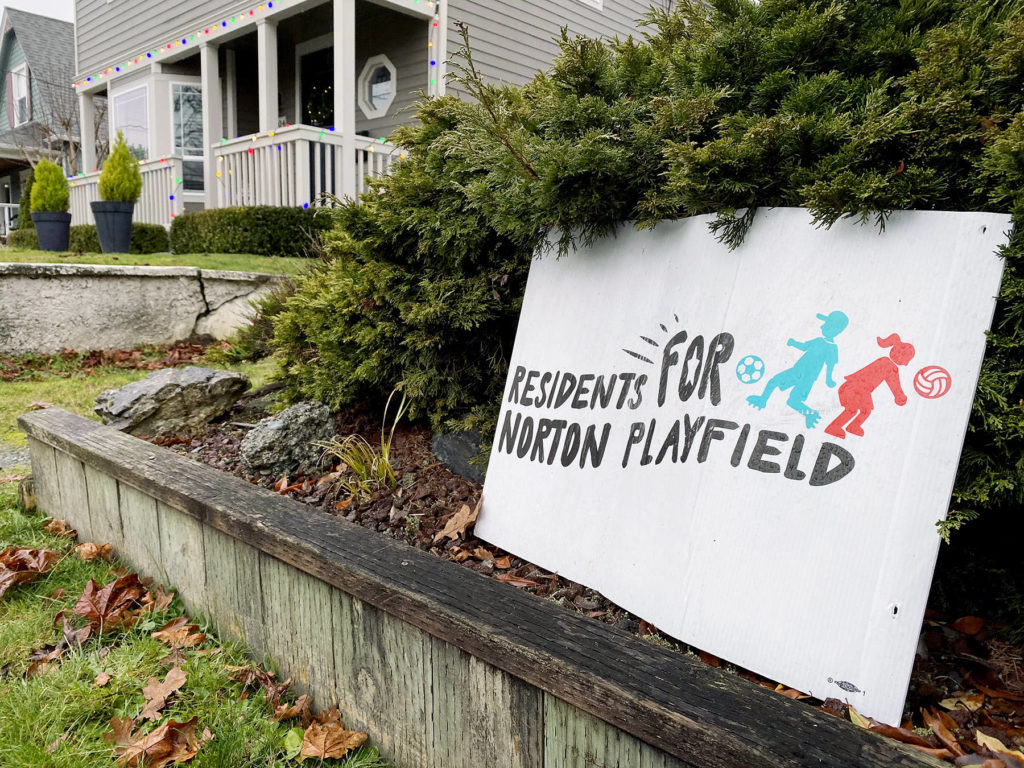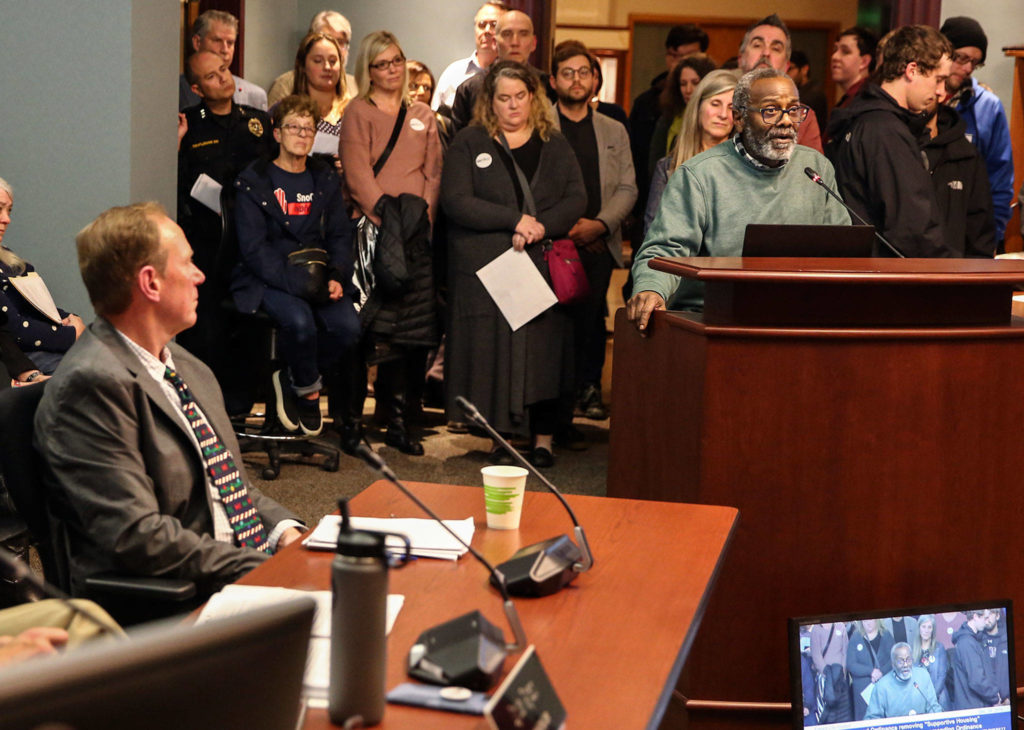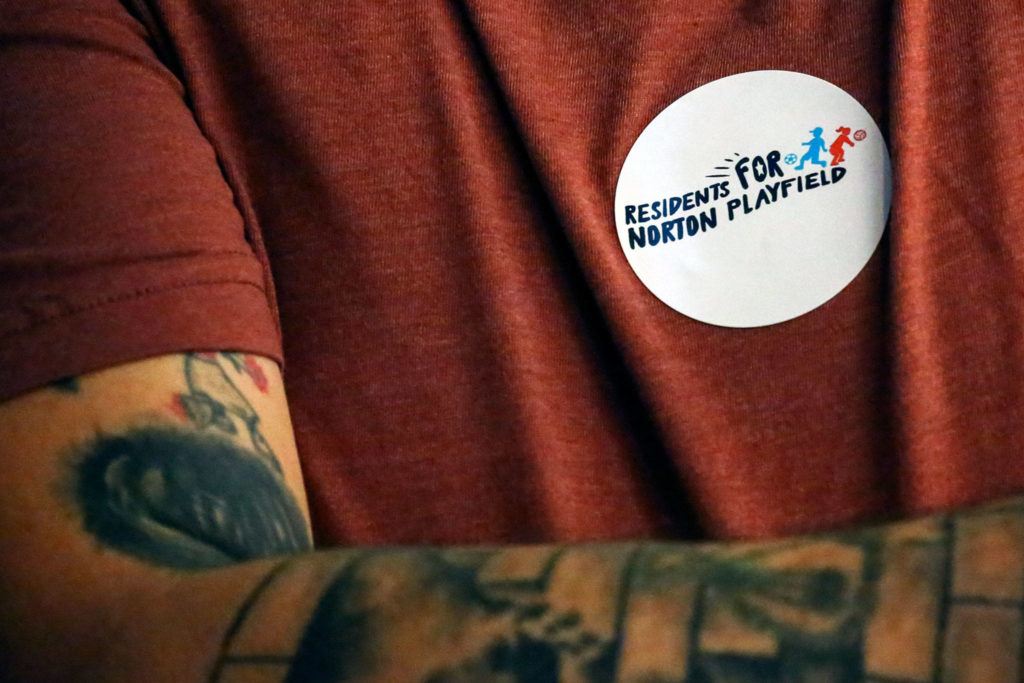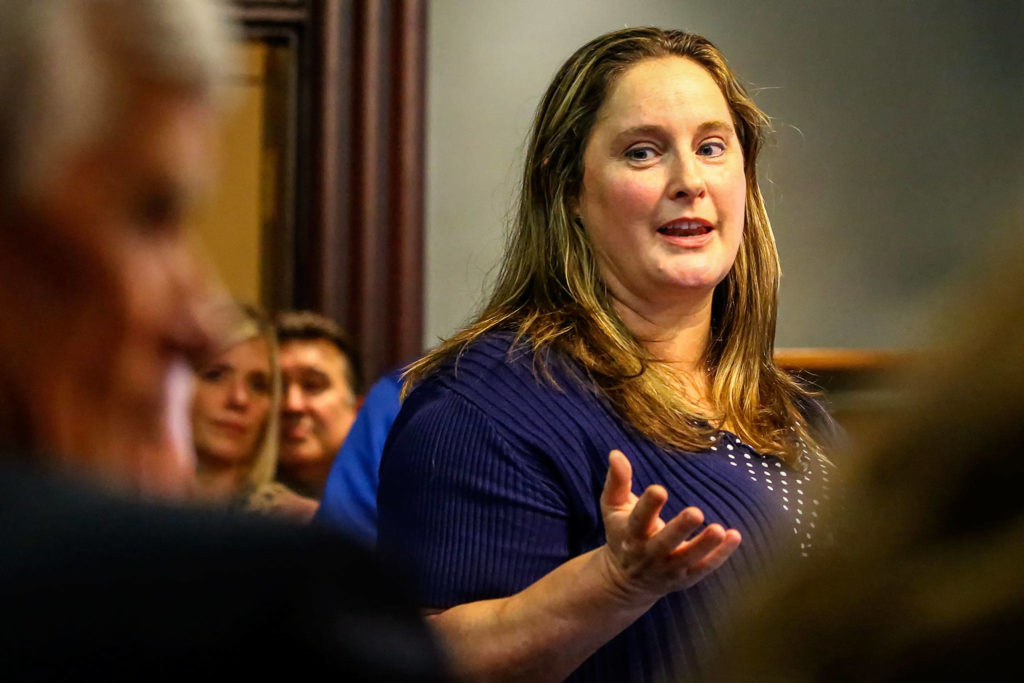EVERETT — Homeless children and their families could be set for housing on Norton Avenue in the Port Gardner neighborhood within a few years.
The Everett City Council voted 5-1 Wednesday night to allow supportive housing on publicly-owned land in single-family residential zones with modified development standards to keep the new development consistent with the existing neighborhood. That would mean reviewing building height, scale, open space, setbacks and distance to transit, and would require notice to neighbors prior to filing a land use application, Everett Planning Director Allan Giffen said.
Councilman Scott Murphy voted against the motion, and Councilman Jeff Moore recused himself from the public hearing and discussion because he works for the Everett School District, a partner in the Norton Avenue proposal. The vote was a reversal of the council’s earlier backing of a moratorium on such development and a recommendation from the city’s planning commission to remove supportive housing as a use in single-family residential zones.
Opposition from neighbors to a deal between the Everett School District and Housing Hope, a nonprofit that works to house and support people who have become homeless, spurred the suspension of previous zoning policy.
Allison Warren-Barbour, United Way of Snohomish County’s executive director and an Everett resident, said the council was weighing good options, but “all options are not equal.”
People poured into Everett City Council’s chambers in a final siege of debate over supportive housing in single-family zones. It led to more than two and a half hours of public comment and more than 50 people speaking to the council about the ordinance.
The moratorium, unanimously approved in June, was set to expire this month. The City Council’s vote ended the moratorium and directed the city attorney and the planning director to work with council members to draft the specific language of the revised ordinance.
Everett City Council President Scott Bader said 58 people had signed up to speak on the ordinance at the start of the hearing, with a handful of others later signing up.
Comments reflected the chasm on the issue: retain the character of single-family neighborhoods, keep green space and see a better process where neighbors are informed earlier, and provide a place where homeless children and their families could find some housing stability in Everett.
James Ivory said he has lived in the Port Gardner neighborhood for 28 years and saw the discussion as a false division.
“The issue is not whether to build transitional housing, but where,” he said.
He told the City Council it should be able to answer “Yes” to a few questions, including if the city believes single-family neighborhoods are a thing of the past and their preservation is no longer warranted.
Mary Helen Dean lives in the neighborhood and wanted the council to allow supportive housing at the property. She works at Clare’s Place, a supportive housing development for chronically homeless people with a low barrier for entry. It was recently built in the Glacier View neighborhood. Dean said the housing is making a difference for its residents and the city, but there are more people who need a place to live.
“We’ve barely scratched the surface with these 65 units,” she said.
In May, the Everett School District agreed to a 75-year lease with Housing Hope to build apartments on the district-owned 3 acres in the 3600 block of Norton Avenue. Preliminary designs called for Housing Hope to construct 34 units of housing for low- to moderate-income families with students enrolled in the Everett School District. The property also could include an early childhood center up to 10,000 square feet. The one-, two- and three-bedroom apartments would be spread across several two-story buildings of three to four units each.
There were 1,266 students who experienced homelessness the school year before the district and nonprofit agreed to the lease, according to the district and state data.
To assist those students, the school district wanted to get them housed in a supportive housing development. Sequoia High School students would receive priority, followed by district students and families, students from other school districts, and low-income households with students.
The project drew the ire of some neighbors, some of whom put up signs that read “Save open spaces — NO high-density development at Norton playfield.” A Facebook page, Residents for Norton Playfield, was created to drum up support against the proposed project. Some people also submitted comments and spoke at public hearings backing the moratorium and calling for it to become permanent.
The site is an open ball field, surrounded by homes along Norton Avenue and a hill below it that connects to the high school. It has an estimated market value of $785,000, according to Snohomish County records. The area where the project is being proposed has both single-family and multifamily housing.
The City Council had tasked the planning commission, an appointed group of volunteers who oversee the early steps in planning policies, with addressing issues such as earlier notice in the development process, parking standards, pedestrian safety and sidewalks, access to transit, proximity to social services and the need for open and green space in Everett. The commission recommended the City Council approve the ordinance which would remove supportive housing as an allowable use on public land in single-family residential zones.
Wednesday’s decision rejected the commission’s recommendation.
The city identified four sites where this kind of zoning — publicly owned and single-family residential — would apply.
Sen. Maria Cantwell, D-Wash., sponsored a bill in Congress in March 2017 that would stop states from considering local opposition as a factor in funding such developments, the Washington Post reported.
Ben Watanabe: bwatanabe@heraldnet.com; 425-339-3037; Twitter @benwatanabe.
Talk to us
> Give us your news tips.
> Send us a letter to the editor.
> More Herald contact information.
